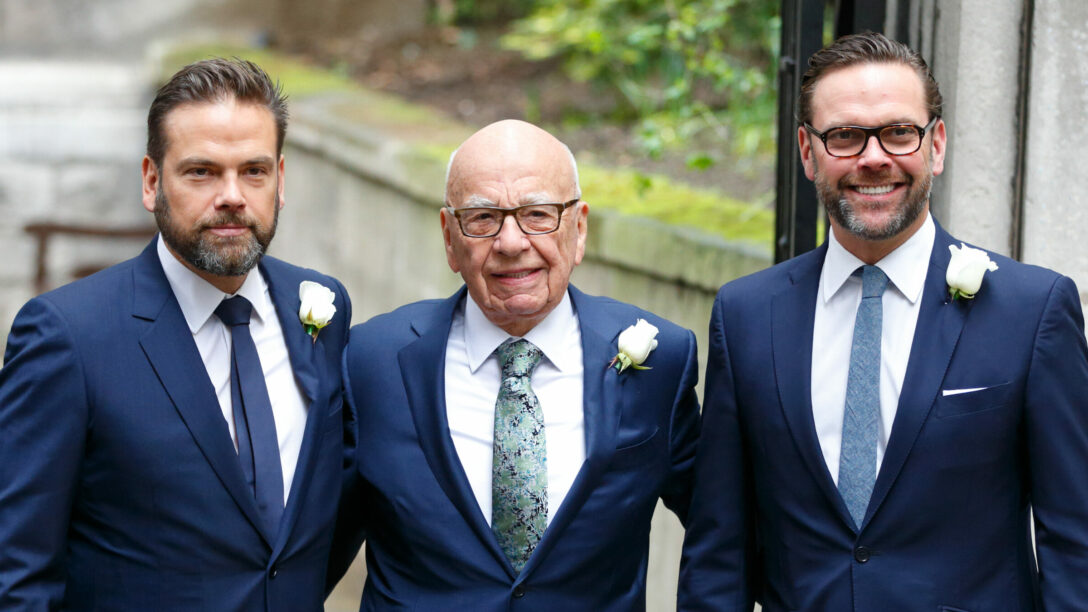“Just how big a deal are these Fox News cases, really?” That’s a question I’m being asked a lot these days, as the Dominion Voting libel suit, along with a similar case by Smartmatic, prepares to go to trial. The two voting machine companies are, after all, seeking billions of dollars in damages over their claims that Fox’s lies about the 2020 election destroyed their businesses. That’s a sizable chunk of change, even for the Murdoch family. I have my own theory about how this all ends, of course. But let’s start with the current state of play, and the latest twists, in what could become the biggest libel case against a media company in American history.
The first thing to understand about these libel suits is how invasive they are for Fox News. The network has already turned over minute-by-minute ratings charts, emails about ratings, MyPillow advertising revenue, most communications with the White House, internal documents that include mentions of both “Trump” and “election,” and so forth. But that’s not good enough, say Dominion’s lawyers, who are demanding to see Sean Hannity’s texts. They are also wondering why, after providing nearly a half million documents about their company, that Fox has only offered thousands of their own. A discovery referee agreed, and pushed Fox to keep digging. Meanwhile, the potential witness list is getting personal: James Murdoch was recently served a subpoena for documents and a deposition next month. Dominion wants to see communications between him and his father; between him and his brother Lachlan Murdoch; and anything that precipitated his decision two years ago to leave the News Corp board (a separate Murdoch-controlled company).
For its part, Fox News is preparing for next year’s trial by adding Dan Webb to its legal team. A former U.S. Attorney for the Northern District of Illinois and now co-executive chairman at Winston & Strawn, Webb is perhaps best known in media circles for leading Beef Products Inc. to a huge settlement, worth at least $177 million, in the “pink slime” libel suit against ABC News. (Interestingly, his former teammate in that case, J. Erik Connolly, is spearheading Smartmatic’s lawsuit. Connolly once called Webb his mentor.) This time, Webb is on defense and is preparing to tell a jury that when the President of the United States issues statements about how a voting tech company helped steal the election, that’s “newsworthy”—and that the responsible thing for any news organization is to report the allegations first, ask questions later.
This notion that Fox News should be allowed to echo defamatory presidential statements with impunity didn’t persuade Delaware Superior Court Judge Eric Davis upon his initial review of the case late last year. At the time, Davis refused Fox’s call to adopt a “neutral reportage privilege,” meaning that media companies would have no liability for accurately and dispassionately reporting charges made by public figures.
It’s precisely those sorts of journalistic questions that are likely to be revisited at trial. Fox News might not have carte blanche, but the network could argue that giving Trump and reps like Rudy Giuliani and Sidney Powell a microphone doesn’t qualify as “actual malice”—a necessary hurdle when public figures sue for defamation. In response, Dominion will likely point to the way that some of Fox’s personnel openly disclaimed any election fraud, and the fact that the voting company served warning letters to Fox in the months after the election. Plus, of course, Dominion continues to seek evidence that Fox employees knew Trump has been lying through its teeth.
Maybe this case gets to trial and results in a mammoth verdict—let’s say $1 billion. Well, of course that result would invite an appeal, for which the defendant has already lined up star attorney Paul Clement. Wouldn’t it be ironic if Fox News pushes to make it tougher to pursue libel cases just as conservative justices like Clarence Thomas and Neil Gorsuch are teasing they’d make it easier by rolling back the “actual malice” standard articulated in Times v. Sullivan? That’d be a fascinating dynamic. But is this case really going to end with a trial verdict? I have doubts. My theory is this case will be settled.
Let’s Make a Deal
Five years ago, I was the only non-local reporter to fly to South Dakota to witness the aforementioned “pink slime” trial against ABC News. Given the ultimate result in the case, this trip might not seem too wild, but keep in mind that it occurred at the same time as Bill Cosby’s first criminal trial, which was obviously the hotter showdown for those on the legal beat. But I had a gut feeling that South Dakota was the place to be. So I spent some time there, watching jury selection, opening statements, and the beginnings of BPI’s case. I flew home, and was planning to return for key closing moments when word came of a settlement. But that wasn’t the end. I immediately made it a point to keep close tabs on Disney’s securities filings. Two months later, I spotted the key footnote in a quarterly earnings report: I had the scoop of a $177 million charge related to the settlement. The amount is believed to be the highest ever paid out by a media company to resolve a libel suit.
I mention all this because I get a similar vibe from US Dominion v. Fox. What stands out to me isn’t just the huge sum of damages alleged, but the fact that this case is playing out in the liberal state of Delaware, a place where there’s no cap on punitive damages. Thomas Clare, the defamation law specialist who typically swings in conservative circles and is now representing Dominion, knows exactly what he’s doing here. He’s taken advantage of the fact that both Dominion and Fox are incorporated in Delaware to bring the case in New Castle County Superior Court, which, unlike Chancery Court, has jury trials. (The Smartmatic case, meanwhile, is being pursued in New York state court, which has a busier docket and a pretty permissive approach to pre-trial appeals. It could take a decade for Smartmatic to get to trial. The Dominion result, I think, will be more consequential for both of them.)
So we have the potential for jurors in Joe Biden’s backyard to send a message to Fox News with a massive verdict. That’s one factor, but there’s something else that, I believe, may set in motion a huge settlement, one that could top the “pink slime” case.
A month ago, Delaware Superior Court Judge Eric Davis allowed Dominion to advance in a separate libel suit against Fox Corp., the parent company of Fox News. The ruling was based, in part, on how the Murdochs have historically exercised a high level of control over editorial matters. What’s significant here is not particularly obvious. According to experts and insiders I’ve consulted, the ruling likely means that Fox Corp.’s wrap-around insurance policy comes into play.
Most media companies maintain E&O (errors & omissions) insurance to cover defamation claims. In the Pink Slime suit, for instance, ABC News had three insurers providing $50 million in coverage and a fourth providing an additional $25 million in excess coverage. (The fourth from AIG contested its obligation with the argument that ABC’s policy had a “carve-out” for situations when ABC defamed with actual malice without an advance green light from outside counsel. As far as I can tell, AIG was forced to pay up.)
Fox News surely has E&O insurance too, even if its deductibles are higher given recent history like the Seth Rich controversy. But now it probably gets to tap an additional pot of insurance money—the parent company’s umbrella policy. And this one, I hear, could have hundreds of millions available.
So now we need to factor the calculus from insurers. They’re typically risk-averse. Do insurers with a stake in the outcome really want to face a Delaware jury being told by the plaintiff to punish Fox to the tune of billions? And if there’s a reasonable settlement offer on the table, say $200-300 million, Fox might nudge them to accept by hinting they could face a bad faith claim by refusing. Meaning, the insurers would arguably be on the hook for the entire verdict regardless of the policy limit.
Finally, would Fox settle? The company may be demanding documents from Dominion during the discovery phase in an effort to prove statements like “Dominion was founded by Hugo Chavez to flip elections in Venezuela” (which is pretty much what Powell told Lou Dobbs in Dec. 2020). But I’m not getting the sense that Fox sees truth as its best defense. Instead, Fox is rallying around the freedom of the press as its strongest card. That, and a healthy bit of skepticism about the damages supposedly sustained by a voting tech firm. Is telling a jury that election conspiracies may have damaged American democracy, but not this particular plaintiff, really such a terrific hand to play at trial?
I don’t think so, and I also suspect it’s significant that Fox has been telling investors in security filings that it doesn’t expect the outcome of these cases to have a material adverse effect on the business. (See note 8.) Should the company lose big, that trial result might lead to cascading consequences. Why risk it if you can get the insurer to foot the bill and you don’t have to admit wrongdoing? That’s why I think, sooner or later, this one gets resolved without the drama. Don’t book your Wilmington airfare just yet.

















